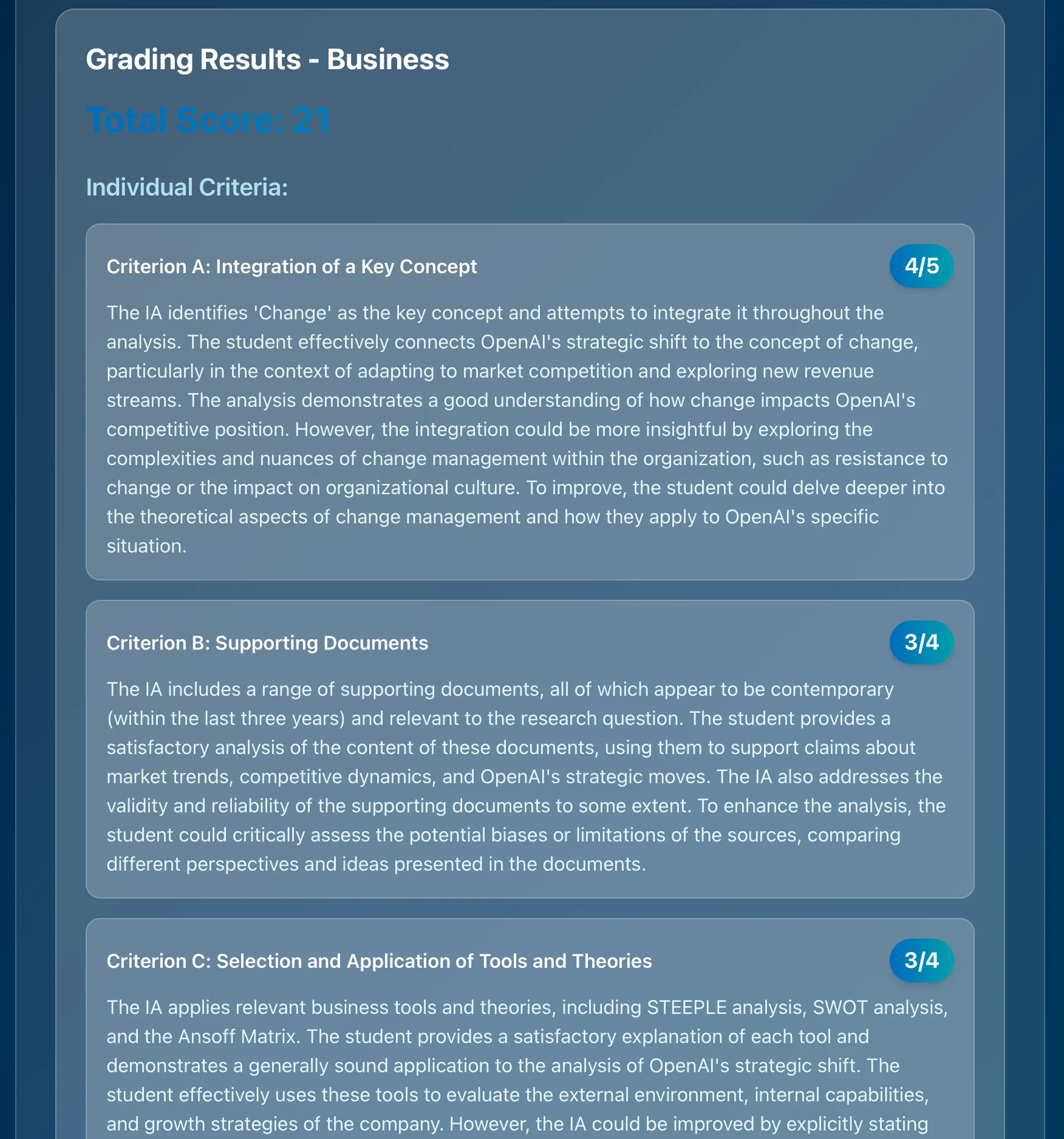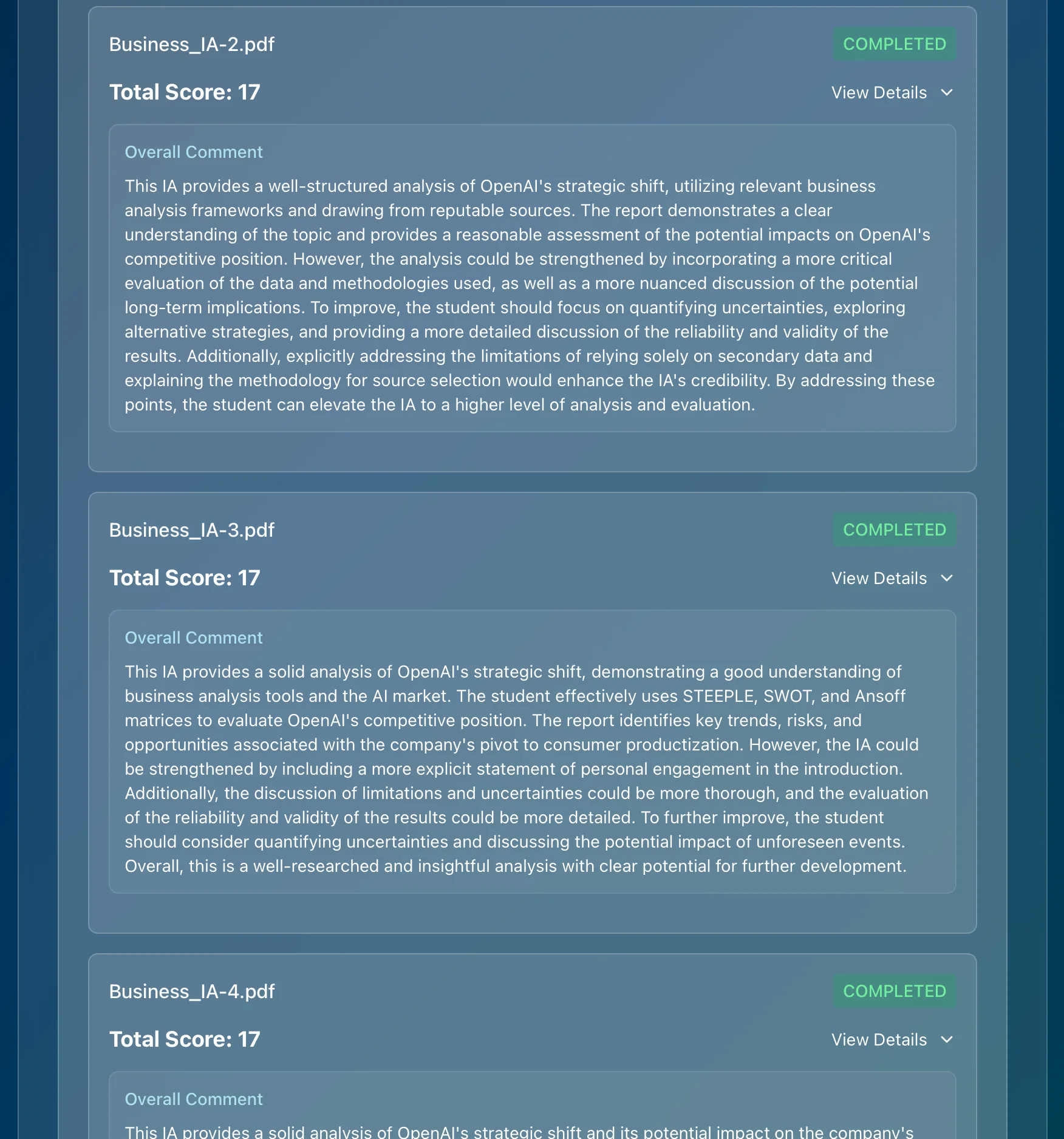Balancing CAS with Your IB Diploma Workload
Juggling Creativity, Activity, Service (CAS) with the demanding academic requirements of the IB Diploma Programme can feel like an impossible feat. You're not alone! Many IB students struggle to find the right balance. This guide provides actionable strategies and time management techniques to help you successfully navigate both CAS and your academic coursework. We'll explore how to prioritize, plan effectively, and even leverage technology to streamline your IB journey, ensuring you thrive in all aspects of the Diploma Programme. Consider this your comprehensive resource for achieving equilibrium and maximizing your IB experience.
Understanding the Importance of Balance in the IB Diploma
The International Baccalaureate (IB) Diploma Programme is designed to be a holistic educational experience. This means that while academic rigor is paramount, the Creativity, Activity, Service (CAS) component is equally vital. CAS isn't just an extracurricular activity; it's an integral part of your IB journey, fostering personal growth, ethical awareness, and a sense of global citizenship. Neglecting CAS can hinder your overall IB experience, while neglecting your academic subjects can jeopardize your diploma. Therefore, finding a harmonious balance is crucial for success.
Why is CAS Important?
CAS allows you to step outside the classroom and engage in real-world experiences. It encourages you to:
- Develop new skills: Through creative pursuits, physical activities, and service projects.
- Increase awareness of yourself and others: By reflecting on your experiences and understanding your impact on the community.
- Plan and initiate projects: Fostering leadership and organizational skills.
- Work collaboratively with others: Enhancing teamwork and communication skills.
- Demonstrate perseverance and commitment: Showing dedication to your chosen activities.
- Engage with issues of global significance: Contributing to a more just and sustainable world.
The Impact of Neglecting Either CAS or Academics
Failing to dedicate sufficient time to CAS can lead to:
- Incomplete CAS requirements: Potentially jeopardizing your IB Diploma.
- Missed opportunities for personal growth: Limiting your development as a well-rounded individual.
- Reduced engagement with the IB philosophy: Undermining the holistic nature of the program.
Conversely, focusing solely on academics can result in:
- Burnout and stress: Leading to decreased academic performance.
- Lack of real-world experience: Hindering your ability to apply your knowledge in practical settings.
- Missed opportunities for personal development: Limiting your growth outside the academic sphere.
Struggling with IB Assessments?
Get instant, detailed feedback on your work with AI that understands IB criteria.

Core Strategies for Balancing CAS and Academics
Effective time management and strategic planning are essential for successfully balancing CAS with your IB Diploma workload. Here are some core strategies to help you achieve this balance:
1. Prioritize and Plan Effectively
- Time Audit: Start by tracking how you currently spend your time for a week. This will reveal areas where you can cut back or reallocate time.
- Create a Realistic Schedule: Use a planner (digital or physical) to schedule your classes, study time, CAS activities, and personal time. Be realistic about how much time each task will take.
- Prioritize Tasks: Use the Eisenhower Matrix (Urgent/Important) to prioritize tasks. Focus on important, non-urgent tasks to prevent them from becoming urgent.
- Break Down Large Tasks: Divide large assignments and CAS projects into smaller, more manageable steps. This makes them less daunting and easier to tackle.
Example: Instead of "Write History IA," break it down into: "Research topic," "Create outline," "Write introduction," "Write body paragraphs," "Write conclusion," "Edit and proofread."
2. Integrate CAS into Your Routine
- Choose CAS Activities You Enjoy: This will make it easier to stay motivated and committed.
- Link CAS to Your Interests: Find CAS activities that align with your passions and hobbies.
- Combine CAS with Other Activities: Look for opportunities to combine CAS with your academic interests or extracurricular activities.
Example: If you enjoy writing, you could start a blog about a social issue you're passionate about as a CAS project.
3. Time Management Techniques
- Pomodoro Technique: Work in focused 25-minute intervals with short breaks in between.
- Time Blocking: Allocate specific blocks of time for specific tasks.
- Batch Similar Tasks: Group similar tasks together to minimize context switching.
- Eliminate Distractions: Turn off notifications, find a quiet workspace, and let others know when you need uninterrupted time.
4. Communication and Collaboration
- Communicate with Your Teachers and CAS Coordinator: Let them know if you're struggling to balance your workload.
- Collaborate with Other Students: Work together on CAS projects or study groups.
- Seek Support from Family and Friends: Don't be afraid to ask for help when you need it.
Common Challenges and Mistakes
Many IB students face similar challenges when trying to balance CAS and their academic workload. Here are some common pitfalls and how to avoid them:
1. Procrastination
- Challenge: Putting off tasks until the last minute, leading to stress and rushed work.
- Solution: Break down tasks into smaller steps, set deadlines for each step, and reward yourself for completing them.
2. Overcommitment
- Challenge: Taking on too many activities, leading to burnout and poor performance.
- Solution: Learn to say no to commitments that don't align with your priorities or that you don't have time for.
3. Poor Planning
- Challenge: Failing to plan effectively, leading to wasted time and missed deadlines.
- Solution: Use a planner, create a realistic schedule, and prioritize tasks.
4. Lack of Reflection
- Challenge: Not reflecting on your CAS experiences, missing out on valuable learning opportunities.
- Solution: Set aside time each week to reflect on your CAS activities and document your learning.
5. Neglecting Self-Care
- Challenge: Focusing solely on academics and CAS, neglecting your physical and mental well-being.
- Solution: Make time for activities that you enjoy, get enough sleep, eat healthy, and exercise regularly.
Pro Tip: Get AI-Powered Grading
Stop second-guessing your grades. Get instant feedback aligned with official IB rubrics.

Advanced Tips and Strategies for IB Success
Beyond the basics, here are some advanced strategies to help you excel in both CAS and your academic studies:
1. Strategic CAS Project Selection
- Choose Projects with Measurable Outcomes: This makes it easier to demonstrate your learning and impact.
- Align Projects with Your Future Goals: Select projects that will help you develop skills and experiences relevant to your career aspirations.
- Consider Group Projects: Collaborating with others can reduce your workload and enhance your learning.
2. Maximize Learning Opportunities
- Connect CAS Experiences to Your Studies: Look for opportunities to apply your academic knowledge to your CAS projects.
- Use CAS as a Source of Inspiration: Let your CAS experiences inspire your academic work and vice versa.
- Reflect Deeply on Your Learning: Go beyond surface-level reflection and analyze the underlying reasons for your successes and failures.
3. Develop Strong Research and Writing Skills
- Practice Your Research Skills: Learn how to find and evaluate credible sources of information.
- Improve Your Writing Skills: Practice writing clear, concise, and well-organized essays and reports.
- Seek Feedback on Your Work: Ask your teachers, peers, or mentors to provide feedback on your writing.
4. Cultivate a Growth Mindset
- Embrace Challenges: View challenges as opportunities for growth and learning.
- Learn from Your Mistakes: Don't be afraid to make mistakes; use them as learning experiences.
- Persist in the Face of Setbacks: Don't give up easily; keep working towards your goals.
Technology and Modern Assessment: Leveraging AI for IB Success
Technology is rapidly transforming the landscape of education, and the IB Diploma Programme is no exception. AI-powered tools are becoming increasingly valuable for both students and teachers, offering new ways to enhance learning, streamline assessment, and improve overall performance.
For students, AI can provide personalized learning experiences, identify areas for improvement, and offer tailored feedback on their work. For teachers, AI can automate grading, provide detailed insights into student performance, and free up time for more individualized instruction.
One area where AI is making a significant impact is in assessment. Traditionally, grading IB assessments has been a time-consuming and often subjective process. However, AI grading assistants are now available to help teachers provide consistent, accurate, and detailed feedback on student work.
Marksy is a leading AI grading assistant specifically designed for the International Baccalaureate (IB). It uses official IB rubrics to provide instant, accurate, and detailed feedback on student work. Marksy offers rubric-aligned scoring, detailed criterion-by-criterion feedback, and suggestions for improvement. This not only saves teachers valuable time but also helps students understand exactly how to improve their work and achieve their academic goals. By leveraging AI tools like Marksy, educators can ensure fairness and consistency in grading while providing students with the personalized support they need to succeed.
The use of AI in IB assessment ensures that grading is aligned with official IB criteria, promoting fairness and transparency. This technology also provides educators with data-driven insights into student performance, allowing them to tailor their instruction to meet individual needs.
Conclusion: Achieving Balance and Excelling in the IB Diploma
Balancing CAS with your IB Diploma workload is a challenging but rewarding endeavor. By implementing the strategies outlined in this guide, you can effectively manage your time, prioritize your tasks, and achieve success in both CAS and your academic studies. Remember to prioritize self-care, seek support when needed, and embrace the holistic nature of the IB Diploma Programme.
Key Takeaways:
- Prioritize and Plan: Effective time management is crucial.
- Integrate CAS: Find activities you enjoy and connect them to your interests.
- Seek Support: Don't be afraid to ask for help from teachers, peers, and family.
- Reflect on Your Experiences: Learn from your successes and failures.
- Leverage Technology: Use AI tools to enhance your learning and assessment.
Next Steps:
- Conduct a Time Audit: Track how you currently spend your time.
- Create a Realistic Schedule: Allocate time for classes, study, CAS, and personal activities.
- Choose CAS Activities You Enjoy: Select activities that align with your interests and passions.
- Explore AI Grading Assistants: Discover how tools like Marksy can streamline your assessment process and improve your IB scores.
Ready to experience the benefits of AI-powered grading and feedback? Try Marksy for free today and see how it can help you achieve your IB goals!